by Timothy Robson

The production (repeated on July 23rd) was directed by Marla Berg, with musical direction by John Simmons and piano accompaniment by Richard Jeric. The simple but effective designs were by Jeff Ridenour (stage settings) and Maureen Thomas (costumes).
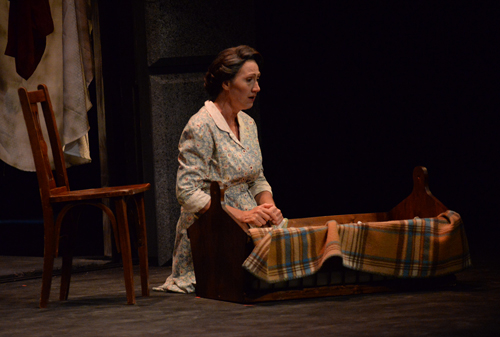
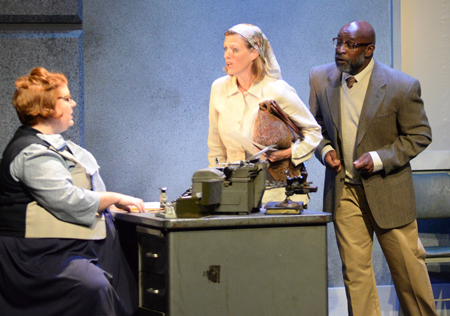
The Consul, although dated in many respects, still packs a timely punch in its representation of the hopelessness felt by its cast of emigrants — each with his or her own story — and their dependence on a bureaucracy beyond their control. In the end, Magda, whose baby and mother-in-law have died, and who believes that John has been arrested and escape is futile, commits suicide by putting her head in her oven and turning on the gas.
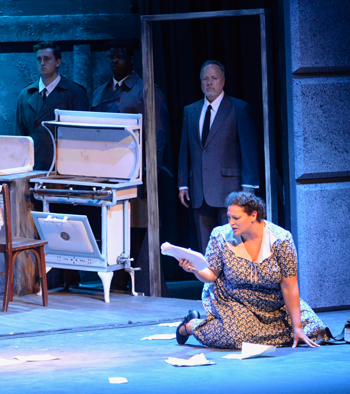
In the last scene, when many of the cast appear in Magda’s death dream to welcome her to “the other side beyond the horizon,” the length of the ensemble robs Magda’s death of its starkness. Judicious cuts would have made for much tauter overall drama.
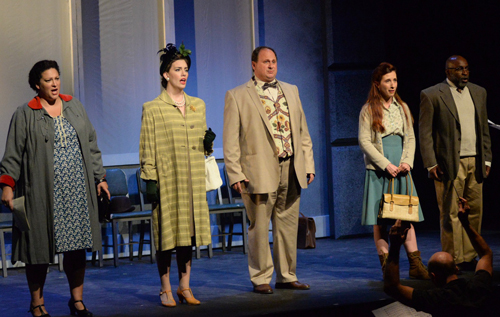
For The Secretary, Magda is just another case, another number on an application among hundreds of others. Wohlschlager managed to portray The Secretary’s own captivity to the government bureaucracy with sly humor. Yet in the end, her humanity comes to the fore when she attempts to warn Magda of John’s return to the city. Alas, the warning comes too late. As the phone rings, Magda has already turned on the gas.
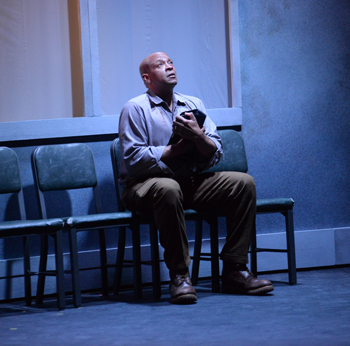
Baritone Robin Rice portrayed the unctuous Secret Police Agent to creepy perfection, but his voice did not always carry the menace required. The smaller roles of people trying to get out of the country were all excellent: Frank Ward (Mr. Kofner), Lara Troyer (The Foreign Woman), Melissa Davis (Anna Gomez), Kaylee Nichols (Vera Boronel).
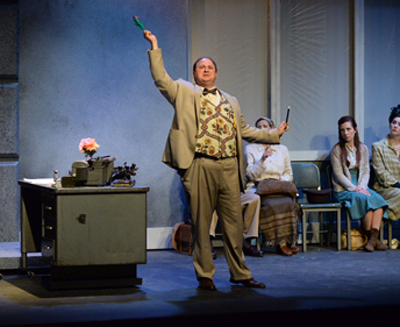
Is The Consul still relevant in our time? The Nightingale Opera Theatre thinks it is. The proceeds from the performances were donated to the Preemptive Love Coalition, which provides health and human relief services and peacemaking in conflict zones.
Photos by Michael’s Portrait Design.
Published on ClevelandClassical.com July 24, 2017.
Click here for a printable copy of this article


